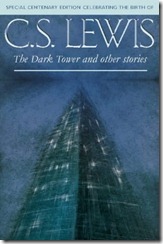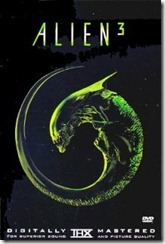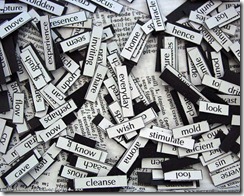It is my ambition to say in ten sentences what others say in a whole book. – Friedrich Nietzsche
My novel, Milligan and Murphy, is 169 pages long. On page 131 I end the sixth chapter with the following three paragraphs:
This is where their story could have ended. Indeed in one way it did. They had ended up where they had started off and it hadn’t taken them too long to find a new life that so closely resembled their old one; it was almost indistinguishable from a distance. Not all stories are epics and very few epics are that interesting; even the ones involving lots of Russians. If everything were interesting then nothing would be interesting. Interesting things are not always significant things either. Think about that.
Would this be a happy ending, though?
Happy endings are nothing more than matters of timing. We are in the midst of beginnings and endings all the time. Every sentence has a beginning and an end and they’re supposed to make sense in between; that’s the rule: a grammatical unit that is syntactically independent; that has a subject that is expressed or, as in imperative sentences, understood, and a predicate that contains at least one finite verb. This book may end—there are no never-ending stories; we could just quit right here—it’s as good a place as any other—but the story goes on and who is to say that the ending we finally decide upon; the one that ends up at the end, is really happy or not so happy? It all depends on what follows. If we quit here you might draw the wrong conclusions about these two entirely. That’s the thing about being an omniscient narrator, I know where things should end and, if the characters start to veer off in the wrong direction or get too settled, well, I can always gee things up for them. Sometimes, however, all you have to do is wait a bit for the action to catch up…
You see, at this point in the story the brothers have gone full circle, i.e. they’ve basically gone nowhere. Since the novel was based on a book by Beckett whose characters famously never go anywhere in particular I could have stopped the book there and I even thought about it. It’s hard to know where to stop especially when you’re not reliant on a conventional plot. Plots lay out everything for you and we really don’t appreciate the storyline dawdling around on after the hero’s quest is over. A short coda is permissible but only a short one. And often writers use these opportunities as an excuse to lay the groundwork for the next book.
 When I wrote Living with the Truth a sequel was the furthest thing from my mind. Just writing a single novel felt like such an achievement and to top everything off I killed off my protagonist at the end of novel which pretty much put the nail in that coffin. Or so I thought. Death ain’t what it used to be though, certainly not after George Dixon was resurrected in 1955 for Dixon of Dock Green (his character having been killed by a young Dirk Bogarde at the end of The Blue Lamp): Bobby Ewing stepped out of the shower in the May 1986 cliff-hanger episode of Dallas, Superman’s died and come back (actually several Supermen did), Spock was reborn, Buffy made a veritable habit of resurrection but she’s a rank amateur when compared to Kenny from South Park. Be it through revivification, reincarnation, mucking around with time, cloning or some form of magic, death these days may still be quick but seldom permanent. The thing I’ve come to realise with hindsight is that I really hadn’t done all I intended to with that first novel. As much as it rankles me to admit this—and it does because on the whole I’m not a huge fan of sequels—the two books do form a cohesive single unit; Living with the Truth feels like a better book once you’ve read Stranger than Fiction. And yet I left Stranger than Fiction on a cliff-hanger with absolutely no intention of ever writing a third book and, nearly twenty years on, I still feel no inkling to return to that universe; it’ll just have to limp on as a duology. (No, I didn’t make it up.)
When I wrote Living with the Truth a sequel was the furthest thing from my mind. Just writing a single novel felt like such an achievement and to top everything off I killed off my protagonist at the end of novel which pretty much put the nail in that coffin. Or so I thought. Death ain’t what it used to be though, certainly not after George Dixon was resurrected in 1955 for Dixon of Dock Green (his character having been killed by a young Dirk Bogarde at the end of The Blue Lamp): Bobby Ewing stepped out of the shower in the May 1986 cliff-hanger episode of Dallas, Superman’s died and come back (actually several Supermen did), Spock was reborn, Buffy made a veritable habit of resurrection but she’s a rank amateur when compared to Kenny from South Park. Be it through revivification, reincarnation, mucking around with time, cloning or some form of magic, death these days may still be quick but seldom permanent. The thing I’ve come to realise with hindsight is that I really hadn’t done all I intended to with that first novel. As much as it rankles me to admit this—and it does because on the whole I’m not a huge fan of sequels—the two books do form a cohesive single unit; Living with the Truth feels like a better book once you’ve read Stranger than Fiction. And yet I left Stranger than Fiction on a cliff-hanger with absolutely no intention of ever writing a third book and, nearly twenty years on, I still feel no inkling to return to that universe; it’ll just have to limp on as a duology. (No, I didn’t make it up.)
I have a motto: Say what you have to say and get off the page. Despite the lengths of some of my blogs it’s something I take seriously when it comes to my creative writing. I’m not saying there haven’t been worthy sequels but I’m struggling to think of any. But when exactly have you said what you need to say? It’s a hard call. I mean you can always think of something more to say, that little bit more, that teensy tiny smidge of a bit just so you don’t have to hit that final full stop and be done.
Schopenhauer said that life is “too short for bad books” and “a few pages” should be quite enough, he claims, for “a provisional estimate of an author’s productions.” I think most of us put this into practice, even if we’ve never said as much out loud. In bookshops we open a book, perhaps in the middle even, scan a few lines—perhaps a whole paragraph—and judge the author based on one- or two-hundred words. But let’s say he or she has roped you in based on those words, you take the book home, settle down with your beverage of choice, commence reading, enjoy what you’re reading, get to, say, page 131, and think: This seems like a good place to stop and so that’s what you do, you stop there, shelve your book and never worry for a moment what might have happened next. No one does that, do they?
If it was a bad book I can fully understand stopping when you’ve had your fill. There aren’t a lot of books that I’ve never finished but there are a few. Three that jump to mind are: Gertrud by Hermann Hesse, Dangling Man by Saul Bellow and the second volume of Don Quixote; told you I’m not one for sequels. There will be more I am sure but not many mainly because I buy books with care. And there have, of course, been books that I’ve attempted to read but returned to years later and wondered what the problem was the first time. The best example of that is the book that was the inspiration for Living with the Truth, The Pigeon by Patrick Süskind which I failed to get through twice before finally, recently, reading it through to the end and thoroughly enjoying it too.
But what, as I said, if it was a good book. Why would anyone decide to stop reading a good book. I know it’s said you can get too much of a good thing but seriously, if you’re enjoying something surely you want to prolong that experience for as long as possible? That’s why we get so many sequels and threequels and quadrilogies and whatever made-up names marketers think will convince us to buy. (Seriously what’s wrong with ‘trilogy’ and ‘quartet’?) Here’s a wee anecdote from novelist Tim Parks:
One of the strangest responses I ever had to a novel of my own—my longest not surprisingly—came from a fellow author who wrote out of the blue to express his appreciation. Such letters of course are a massive pep to one’s vanity and I was just about to stick this very welcome feather in my cap, when I reached the last lines of the message: he hadn’t read the last fifty pages, he said, because he’d reached a point where the novel seemed satisfactorily over, for him.
Naturally I was disappointed, even a little angry. My leg had surely been pulled. Wasn’t this damning criticism, that I’d gone on fifty pages too long? Only later did I appreciate his candour. My book was fine, for him, even without the ending. It wasn’t too long, just that he was happy to stop where he did. – Tim Parks, ‘Why Finish Books?’The New York Review of Books, March 13, 2012
There are a number of unfinished works out there that we treat as if they are complete. Schubert’s Unfinished Symphony is the one that obviously jumps to mind even though attempts have been made to polish it off. But is it incomplete and is it fair to compare a symphony to a novel? Wikipedia has a whole page full of unfinished novels which leads me to believe that there is definitely something to be gained by not reading to the very end but in these cases all we have is all we have and I imagine most people reading those books wished they knew just how the author would have ended it. I mean that adaptation of The Mystery of Edwin Drood we had over Christmas last year was fine, it made sense, but is that what Dickens would have done? We’ll never know. The only book I’ve started where I knew it was unfinished was The Dark Tower by C S Lewis and I can tell you I was disappointed by it leaving me hanging in mid air.
we had over Christmas last year was fine, it made sense, but is that what Dickens would have done? We’ll never know. The only book I’ve started where I knew it was unfinished was The Dark Tower by C S Lewis and I can tell you I was disappointed by it leaving me hanging in mid air.
“You can't get a cup of tea big enough or a book long enough to suit me.” So said Lewis. I have to disagree on both counts. A while ago I read my first—and I can pretty much guarantee it will be my only—1000-page novel, The Instructions by Adam Levin and, in my review, I wrote, “no book needs to be 1030 pages in length, I don’t care who wrote it or what it’s about.” I stand by that and I have to say that final chapter dragged. I could have easily stopped short and been completely satisfied. But if I had I wouldn’t have seen his full vision and I might not have been quite so disappointed because I wasn’t that crazy how he chose to end things; unbelievable as it sounds, the ending felt rushed.
Of course it all depends on the book. The only point in reading an Agatha Christie (I’m being facetious here) is to get to the drawing room scene at the end. But then again her books are plotted and once you know who did it and how they were found out you really don’t want any more. I read a thriller many years ago—I think it was a le Carré—and the climax arrives one page before the end of the book; I remember being quite impressed by that at the time. It’s the kind of thing one expects from a good horror film: the monster dies and the film ends a minute later. That’s what we came to see, we’ve seen it and so we can go and queue for fish and chips now.
I look at the books coming out at the moment and I think all of them are too long. I’m a self-confessed lover of the novella even though I’ve never actually written one. I’ve always thought I would but I always seem to have another 10,000 words in me. And I can live with that because four of my five books are all under 60,000 words. The fourth novel clocks in at 90,000 and I consider it a ruddy epic. I can’t believe I managed to write a book that long. In his article ‘Why modern books are all too long’Robert McCrum thinks he has the answer:
Literary elephantiasis starts across the Atlantic. North America has a lot to answer for. In the "pile 'em high" tradition, US bookshops love to display big fat books in the window. The cut-and-paste technology of word processors must bear some of the blame, but overwriting is part of the zeitgeist. Jonathan Franzen'sFreedom is highly enjoyable but who's finishing it? The novel is at least 100 pages too long.
He believes, as many others do, that The Great Gatsby is the greatest novel in English in the 20th century; it weighs in at under 60,000 words. He calls it “a miracle of compression” and goes on to point out that between them Waugh, Greene and Orwell all wrote books that average out between sixty- and seventy-thousand words apiece. Stephen King says he has to cut at least 10% on every novel he writes to sharpen it up.
"If there is anywhere a thing said in two sentences that could have been as clearly and engagingly said in one, then it's amateur work." — Robert Louis Stevenson
"Was there ever yet anything written by mere man that was wished longer by its readers, excepting Don Quixote, Robinson Crusoe and The Pilgrim's Progress?" — Samuel Johnson
I have to disagree with him as far as Cervantes goes although maybe not. Once I’d finished the first volume I did dive into the second but why I gave up on it was because the second was just the same as the first; I wanted the same but different.  That’s why James Cameron’s sequel to Alien is such a damn good film and why its sequel, Alien3, is a better film than people often give it credit for.
That’s why James Cameron’s sequel to Alien is such a damn good film and why its sequel, Alien3, is a better film than people often give it credit for.
Part of the problem is that people set down arbitrary rules for how long a book, especially books of certain genres like science fiction, ought to be. Most publishers—for first time authors—want something between 80,000 to 120,000 words. I just don’t get that. A book is finished when you’ve said what you had to say. Why all the padding? Problem is the padding will likely be evenly spread throughout the book and so you can’t just skip the last fifty pages and be done with it. More’s the pity.
Okay, what am I going to say now? I’ve reached that point in the article where I think I’ve made my point and I’m not sure what else I have to say but I haven’t managed to tidy things up. I don’t have a nice pithy (or even pissy) punch line to leave you with and so I keep typing hoping that something might come, something clever to leave you with. I even let the whole article sit for a day before I started writing the sentence I’m typing just now. I read through from the beginning (as it my habit) hoping all the time that something would jump out at me that would enable me to maybe write another five-hundred words and, perhaps, think of a decent ending but it doesn’t look as if that’s happening and yet I just keep on typing and typing and typing…
Nope. Can’t think of anything. So I’m just going to stop. Wait! No! I’ve just thought of a great quote to leave you with:
So the writer who breeds more words than he needs, is making a chore for the reader who reads.
So that’s you left. And I’ve got the title for my blog.
